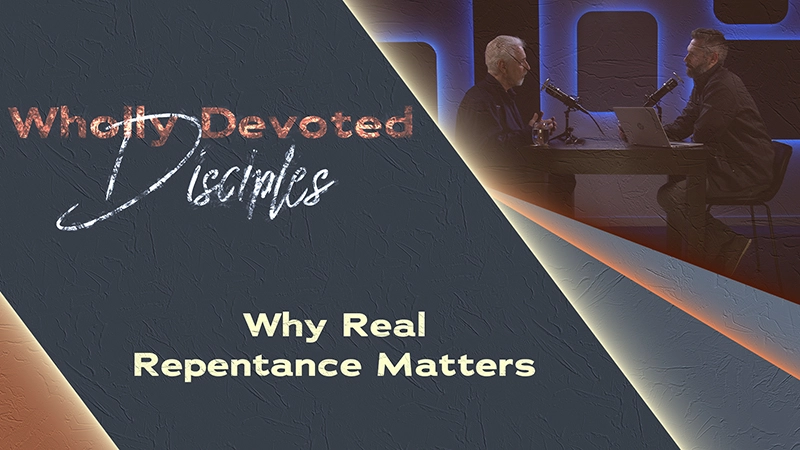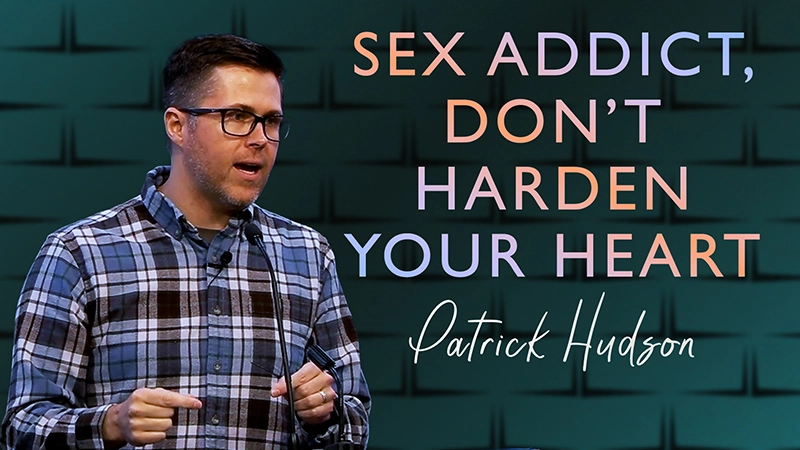
Timeless Truths: Be Holy, Says the Lord
In this Timeless Truths segment: As members of the church, we are called to be holy and set apart for God’s purposes. This will require a vigilance on our part, because the spirit of this world is always seeking to defile us and lead us away from the Lord.
Host: Steve, as we continue our discussions today on your book, “Intoxicated with Babylon,” in that book, one of the key messages was the need for God's people to separate themselves from the unbelieving world around them. Talk to us first about how that played itself out in the Old Testament times.
Steve: One of the great expectations God had of His people in the Old Testament times was that they would remain separate from the pagan nations around them such as the Canaanites, the Amorites, and so on, because those nations were totally given over to devil worship. But not just that, it was also that their lifestyles were very ungodly and carnal. So, the nation of Israel was like an island. That's the way that Yahweh foresaw it, that His presence would prevail in that land and amongst that people and then from there, they would be able to export that godliness to the heathen nations around them.
Host: Okay. How did that change then as we move into the New Testament times?
Steve: When we come into the New Testament, everything changed at Calvary. Jesus Christ’s death was the sacrifice for man's sin. We no longer had to go through the sacrificial system, but that did not end God's expectation of His people to be separated unto His purposes. The difference now would be that instead of them being a people who were physically separated by national borders, now God's people were going to be living amongst the unsaved. And yet in their hearts, and this is the great change from the Old Testament to the New, instead of things being outward, now they were going to be inward. So, in the New Testament Times, God's people were expected to remain separate from the world in their hearts.
Host: But so often what we see amongst professing Christians today is that they have made some response to the call of God and yet they're still living with one foot in the Devil's kingdom and foot in God's kingdom. What does the Word of God tell us about that?
Steve: Well, actually the Greek is very clear on this and I'm not sure why it hasn't been brought out more by other Bible teachers. For instance, the word “hagios,” which is the word we see for “saints” throughout the New Testament, literally means separated ones. Set apart ones. Holy ones. That's what the word means, and that's what a believer is supposed to be. Someone separated from the unsaved world around them. And the same concept is transferred to the corporate body of these separated ones with the Greek word for “church,” which is “ecclesia”. And that comes from the combining of the two words “ek” which means out and “klétos,” which means called. So, in other words, the Church in the Greek literally means called out ones.
Host: Steve, in 2 Corinthians 6, Paul goes into some significant detail about what it really means to live as a separated Christian. And in your book, you brought out of that passage 3 commandments. Let's go through those. I think that'll help folks to understand really what it means to be a separated Christian. You started out with the first commandment, get out of unequal yokes.
Steve: Yeah, and this one is one of those things where people get themselves into relationships with unbelievers that really are only going to drain them spiritually and lead them astray. For instance, a young Christian girl marries an unbelieving boyfriend. Now we all know stories where God has used it for good and the boy ends up getting saved and they live happily ever after. But we should never take one of those exceptions and use it to dismiss the wisdom and even the commandment in God's Word. When He says do not be unequally yoked, we need to take that commandment seriously.
Host: Steve, how do we reconcile that command with our responsibility to be a witness? I mean we are after all, “in this world.”
Steve: That's a very good point. We are to be a light to an unbelieving world. It’s one thing to have a loose association with unbelievers, such as unbelieving family and coworkers where you can live out the Christian life before them and they can see Christ through your life. But to be in close intimate relationships with unbelievers, that's another matter. That's the difference between the two.
Host: Okay. The second command that you took out of that passage from Paul was that your lifestyle must change.
Steve: The implication there was that before they came to Christ, they were part of this ungodly world. In fact, Paul had written to the Ephesians, “you were dead in your trespasses and sins, in which you formerly walked according to the course of this world, according to the prince of the power of the air.” (Ephesians 2:1-2a, NASB 1995) You see, we formerly walked according to the course of this world. But when we come to Christ, something must change. That's what repentance is all about. We repent of and turn away from the Devil's kingdom and we now join ourselves with God's Kingdom. And we take on a whole new value system and we identify ourselves with the purposes of God. Any part of our lifestyle that still reflects that old worldly mentality must change.
Host: OK. Then the third command was to decontaminate yourself.
Steve: Paul told the Corinthians in this passage, “Let us cleanse ourselves from all defilement of flesh and spirit, perfecting holiness in the fear of God.” (2 Corinthians 7:1b, NASB 1995) Again, this is another direct reference to the contaminating influences of this fallen world around us. The picture of it comes from Old Testament times. When you got around a leper’s house, let's say you had to go in that house for some reason, the idea was not to touch anything because you're going to become terribly contaminated. That’s the same kind of mentality I believe that Paul had when he's telling these Greek believers that they need to separate themselves from the ungodly world around them and not become involved with it because you will be contaminated by it.
{{blog-bbaby="/blog-ads-storage"}}
Host: You know, as you're sharing that Steve, it should become real to many of us is that in the church today, we're not hearing this kind of preaching. We’re not hearing this kind of message that we have to take these things seriously.
Steve: I know, and I believe the reason for that is because so much of the church has already become so immersed in this world and the pagan culture in which we live. I think for most Christians, the culture is much bigger in their minds and in their hearts than the Kingdom of God. But nevertheless, these commandments are still there. For instance, not long ago I was in a hotel and I watched some television, something I rarely have the opportunity to do and rarely do. But I was just flipping through the channels trying to find a decent channel, something like the History Channel, and just in one go round through the channels I saw unbelievable things. And what occurred to me later is that this is what Christians are immersing themselves with every night practically. They are contaminating themselves with the immoral values of this world. And let's not forget that Satan is called the Prince of this World.
Host: I think one of the things that was very encouraging to me in reading this chapter and that I think will help folks to understand the long term goal of God wanting us to come out from this world, is that we really need to have an eternal perspective because we do have a home that we're going to. There is a reason God is wanting to prepare us in this way.
Steve: Yeah. I mean, it sounds like a totally negative message that we're talking about, but there is a purpose behind it. The purpose is to separate ourselves from the world. For what? For God. Because He is calling a people out unto Himself. Jesus is calling a bride out to Himself and He's not going to have a bride with other lovers. And the eternal ramifications of that love affair are just so astounding, they're beyond our comprehension.

















